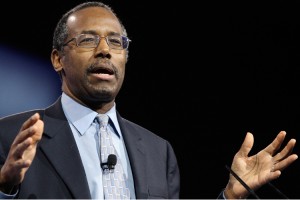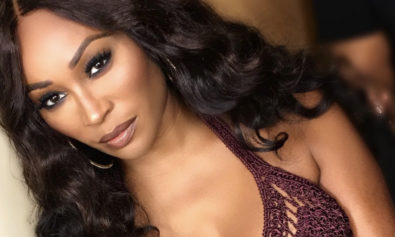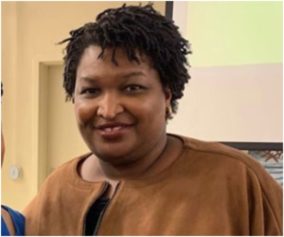The death of Michael Brown, which happened almost a year ago in Ferguson, Missouri, sparked the Black Lives Matter movement, which Black archivists see as a pivotal moment in American history. NPR reports archivists from the National Museum of African American History and Culture are collecting artifacts that will help explain the Black Lives Matter movement to future generations.
“One of the jobs of a museum is to not only look back, but to look forward,” said Lonnie Bunch, the museum’s director. “And so once I heard about [the demonstrations] I knew it was very important to make sure that we collected material that might help a curator 20 years from now or 50 years from now look back and tell the story of the changing notions of race in America.”
Bunch and other historians are collecting any items they deem important to the historical record. This includes signs, planks of woods and even gas masks. Since this is the 21st century, and much of our communication is done on mobile devices, historians are also gathering tweets, texts, cellphone pictures and other forms of electronic communication.
“We have gone around and made sure that we were there when things happened in Baltimore. We looked at all the Black Lives Matter conversations whether it was in demonstrations in New York, or in Washington. But we also decided what was really important to collect was the cellphone videos and photographs that people took at various demonstrations,” Bunch said. “One of the biggest changes is that this allows us to get multiple perspectives from people who aren’t journalists, who aren’t professionals.”
The Ferguson protests and the Black Lives Matter movement witnessed a new development in the civil rights movement, with activists using social media and cellphones to tell their own stories and not wait on the mainstream media. In many cases, activists were making live updates on the ground before media outlets like CNN arrived.
Bunch said the Black Lives Matter movement is the latest battle in the ongoing struggle against racial oppression.
“In many ways, the goal of a museum like ours at the Smithsonian is to understand that context. To understand that racial violence is not new, that there’s a long history,” Bunch told NPR. “But also that, in some ways, one of the things that happens in these moments, is there are moments of possibility — moments that help people change America. It was the murder of Emmett Till that sparked the civil rights movement.”
While historians like Bunch see the Black Lives Matter movement as an important moment in American history, not everyone is so enthusiastic. While Black Lives Matter activists have successfully inserted themselves into the 2016 presidential campaign, some candidates are dismissive of the movement. Presidential candidates such as Jeb Bush, Bernie Sanders and Martin O’Malley were accused of being dismissive when they said, “all lives matters.” They have backtracked on their comments, but Republican candidate Dr. Ben Carson described the Black Lives Matter movement as “silly.”
“Of course all lives matter. I don’t want to get into it, it’s so silly,” Carson said. “Black lives are part of all lives, right? When we’re talking about a culture of life, then we ought to be talking about a culture of life and not allow ourselves to get caught up in all the divisive rhetoric and terminology and political correctness. It’s the reason we can’t make any progress as a society.”
However, Carson has already backtracked on his comments. In a Sunday television appearance, he claimed he was referring to political correctness, not the Black Lives Matter movement.
“Well, you know, I don’t recall calling it silly, but what I called silly is political correctness going amuck. That’s what’s silly. When, you know, I guess it was Martin O’Malley who said, you know, ‘Black lives matter, white lives matter.’ He got in trouble for that and had to apologize. That’s what I’m talking about is silly,” Carson said on NBC’s Meet the Press.
Samuel Sinyangwe, co-founder of activist group WeTheProtesters, told ThinkProgress Carson’s comments show the Republican Party is generally clueless about racial issues.
“I don’t think [Carson’s] different from any of the candidates on his side in terms of his perspective, in terms of his constraints, in terms of his party. This is an issue that is endemic to the Republican Party and I wouldn’t call out Ben Carson in particular just because he’s Black,” Sinyangwe said.



